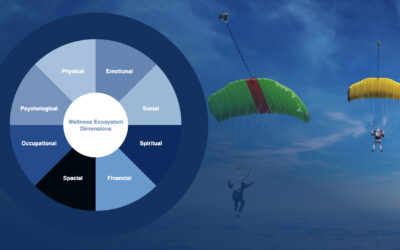According to one GenZ survey from Kornferry, one in eight managers reported firing a GenZ employee in their first week. Overall three in four managers say they find working with GenZ’ers difficult. The reasons cited for this include lack of technical skills, lack of effort and lack of motivation. Whether it’s “Only Good Vibes”, or another catch phrase that attempts to encapsulate the attitude of a generation, the signs of growing pains for GenZ in the workforce are showing. As the saying goes The Struggle is Real.
The Struggle is Real
Gen Z tends to be purpose driven and looking for a sense of fulfillment from their work. They want organizations to also be mission and purpose driven, so topics like sustainability, circular economy and other initiatives are important to them. The generations ahead of them have had the experience of growing up with a traditional work model, where with the pandemic has introduced a shift in the traditional model – but has left them largely without an ability to see their co-workers model the new behaviors.
It’s an exciting time to redefine expectations around what it means, what it should mean, and how work is conducted going forward. At the outset of the pandemic the power balance swung in the direction of the employee, and in some ways it feels like it’s swinging back. Corporations appear to be desperately holding on to the way things use to be. Imposing fear mechanics in the form of reverse incentives for not getting in line and ‘coming back to the office 3 days a week‘. Collaboration is necessary to foster a working environment where everyone can thrive, and also drive revenue and profit and all of the things that make the world turn. Money of course, still does not grow on trees.

Debt Tears us Apart, Cr Ehud Neuhaus
This is nothing new and that it’s unfair to label Gen Z as all of these things. There is a genuine aspect to this that can be attributed to youth, and optimism and a belief not only in one self but a belief that the institutions that surround us should also be inspired, motivated and optimistic. Maybe the generation in charge, or those who have been at the helm for a while need to trade in some of the pessimism that has been built up over years of challenge and overcoming obstacles that naturally lead them to feel jaded – hence then they take it out on the youth and shame-label them into submission. Don’t let someone else’s world-view define you.
Not only are we saddling the younger generations with more debt and baggage, but we’re also creating inhospitable environmental conditions. So, if GenZ has expectations of a different future, a future that prioritizes decisions that align to their values. By all means, define that framework, make a case for it, be willing to hear feedback, and make it part of your new way of working.
One thing we all face in our relationships, whether at home or in the workplace is ability to gracefully challenge each other, or address different points of view without creating conflict. This is one area recent studies have highlighted a significant challenge for the new generation entering the workforce. Along with lack of experience has also come a lack of exposure to working through differences. It’s here where the real work, of working together happens. Often referred to as the process of “socialize and align”, where managers will ask if the idea you have is something that your peers have bought into. Or, if you’ve built a case for it and considered the trade-offs, and if one or more of your peers has the same or a different point of view. The nuances of this are laced with politics and culture. Often the ‘cult’ of the organization will influence which ideas rise to the top and which of those get dismissed. For the older generations who’ve been in the workforce, these tend to be the hallway conversations or the sidebars, or the ‘meetings before the meeting’.
Socialize and Align or Get in Line
The opportunity to introduce new ways of working and new social norms around how this takes place, and the time to make a shift is now. If there’s any one area to focus on skills development it would be in how to establish this new ‘soft skill’ from a distance, in a remote or hybrid environment and not require that to be in person, or conform to legacy social hierarchies.
Gen Z Stat’s in the workplace:
- 58% – population of GenZ in workforce by 2030
- 26% – say compensation does not allow for a good quality of life
- 56% – say they are less likely to be recognized for their work
- 55% – report having been diagnosed or treated for mental health
- 25% – work multiple jobs
- 45% – concerned about job stability
- 23% – expect not to retire
- 59% – expect not to be able to buy a home
- 26% – indicate work is affected by a hostile work environment
- 23% – access to transportation affects their ability to work
Credits, Sources and Resources
GenZ in the Workplace is Difficult – Kornferry
GenZ Technology Skills Survey
GenZ Managers Find them Most Challenging to Work With
How Prepared are Employers for GenZ
How Does Gen Z see itself in the Workplace


